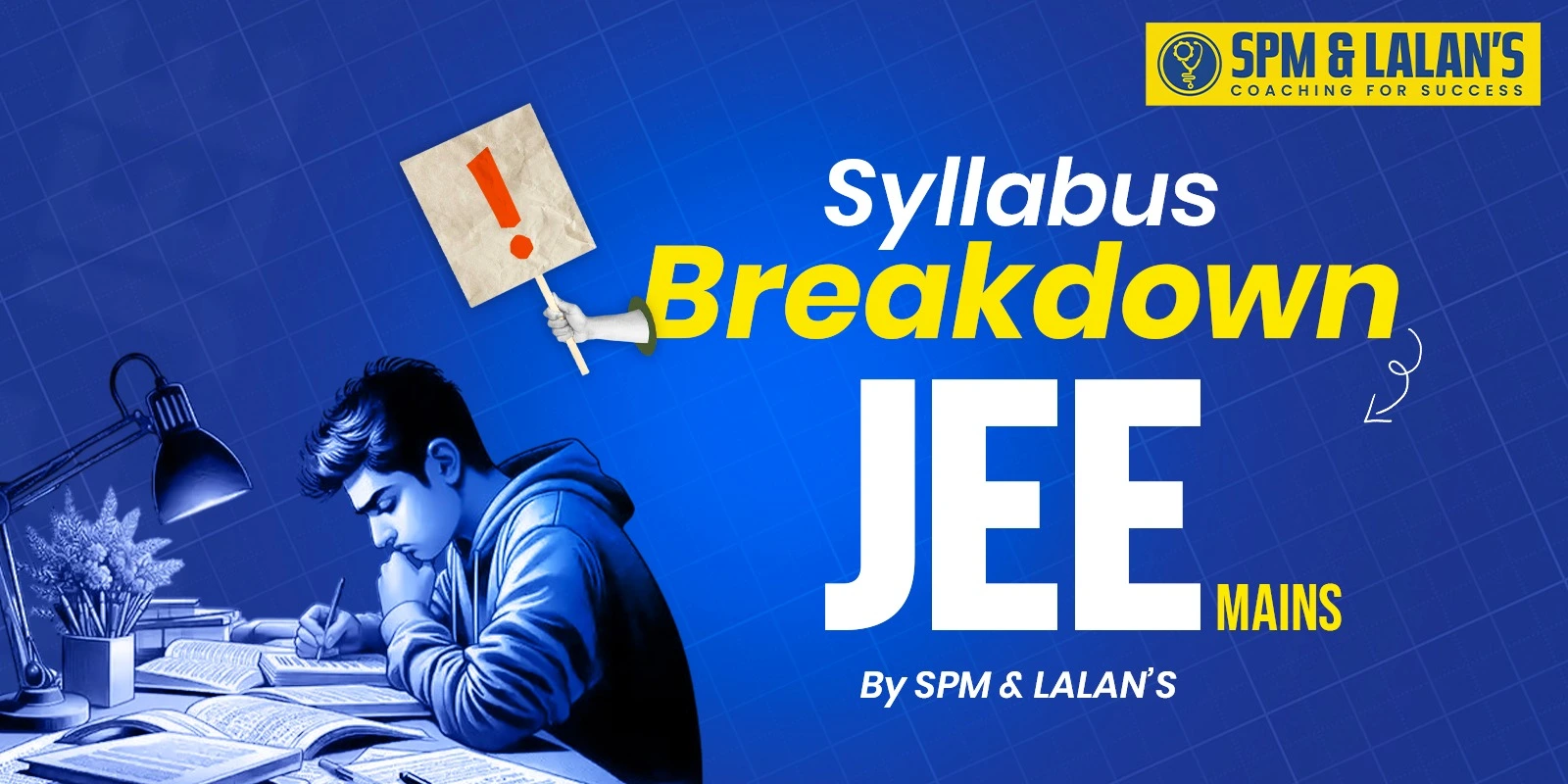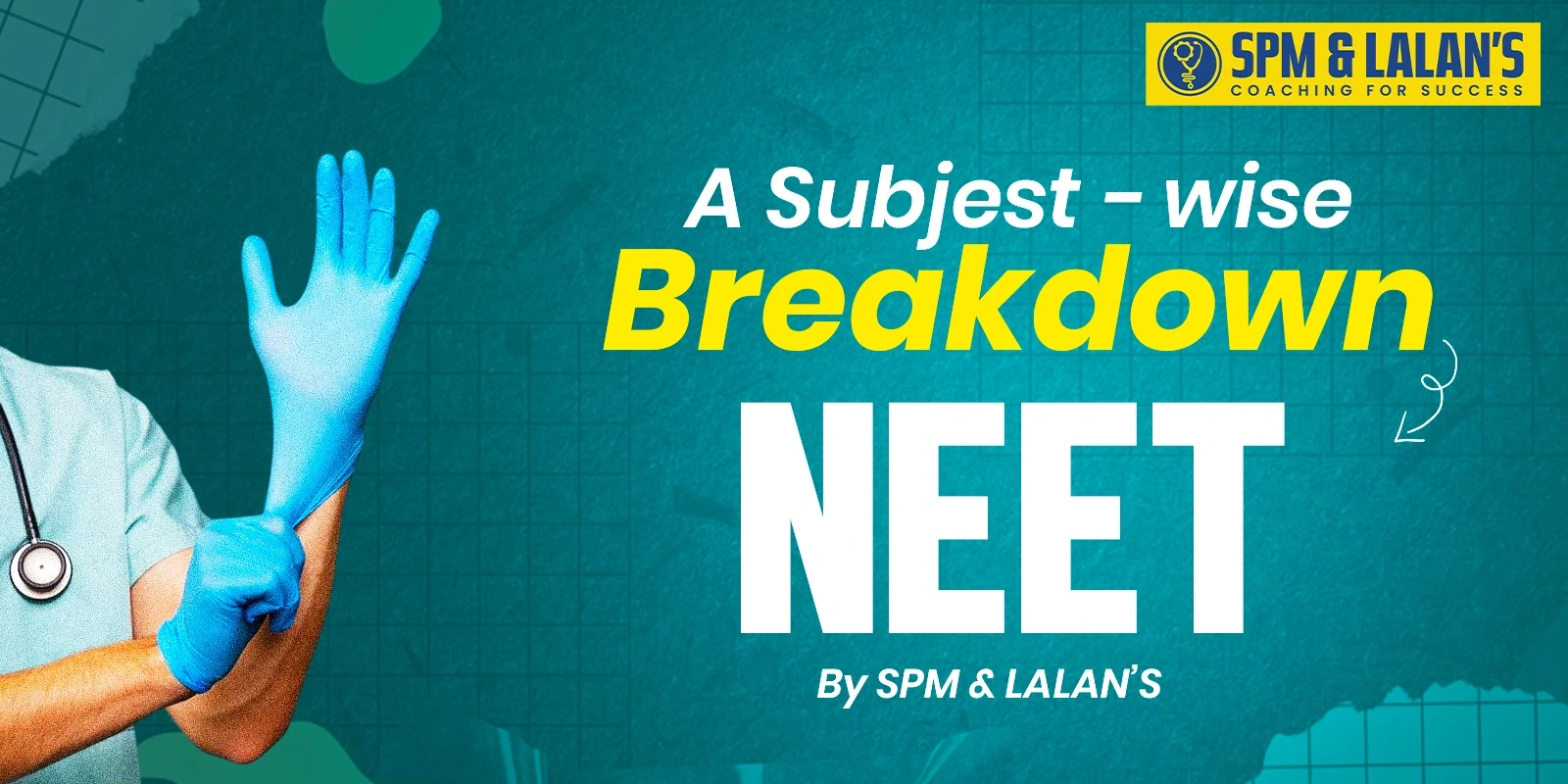Physics remains a popular subject among JEE aspirants for JEE Main 2026. It plays a key role in developing critical thinking and problem-solving skills. Moreover, the importance of physics in competitive exams like JEE Main and Advanced cannot be overstated. Thus, in these exams, physics questions primarily assess conceptual knowledge. This requires a strong foundation and practical application of concepts to excel.
Preparing for JEE Main Physics 2026 requires a clear understanding of the JEE Main Physics Syllabus 2026. Before diving into your preparation, make sure you’re familiar with the JEE Main Eligibility Criteria 2026 to confirm your exam readiness and qualification requirements. Focus on key topics and gather the right study materials. Additionally, knowing the important topics for JEE Main Physics 2026.
In this article, we will discuss the important topics for JEE Main Physics 2026. Moreover, we will also look at the chapter-wise weightage for JEE Main 2026.
JEE Main 2026: Physics Important Chapters
To achieve a high score, it is important to concentrate on the important chapters. These chapters have historically carried significant weight in the exam.
Below are some of the important topics for JEE Main Physics 2026:
- Rotational Motion
- Thermodynamics
- Oscillations And Waves
- Electrostatics
- Optics
- Magnetic Effects Of Current And Magnetism
- Modern physics
Important Topics for JEE Main Physics 2026
Many students are unaware of the most important chapters in Physics for JEE Main. There are 21 units included in the JEE Main syllabus for Physics.
Below is the list of the important topics for JEE Main Physics 2026:
| High Weightage | Low Weightage |
| Heat & Thermodynamics | Heat Transfer |
| Ray Optics | Fluids |
| Electromagnetic Waves | Nuclear Physics & X-Rays |
| Semiconductors | Work, Energy & Power |
| Error & Instrument Analysis | Units & Measurements |
| Gravitation | Dual Nature of Matter & Radiation |
| Wave Optics | Circular Motion |
| Photoelectric Effect | Centre of Mass & Collisions |
| Oscillations | Communication Systems |
| Electromagnetic Induction & Alternating Current | Laws of Motion |
| Rotation | |
| Kinematics | |
| Electrostatics | |
| Current Electricity & Capacitors | |
| Properties of Matter | |
| Magnetic Effects of Current & Magnetism | |
| Bohr’s Atomic Model | |
| Waves & Sound |
JEE Main Topic-Wise Distribution for Physics 2026
To streamline your preparation and cover every relevant chapter, check out our full unit-wise breakdown of the JEE Main 2026 Physics Syllabus — with detailed units, topics and study-tips.
Below is the topics-wise distribution for Physics 2026:
| Chapters | Total Questions | Weightage | |
| Percentage | Marks | ||
| Modern Physics | 5 | 16.50% | 20 |
| Optics | 3 | 9.90% | 12 |
| Heat and Thermodynamics | 3 | 9.90% | 12 |
| Electrostatics | 3 | 9.90% | 12 |
| Current Electricity | 3 | 9.90% | 12 |
| Magnetics | 2 | 6.60% | 8 |
| Simple Harmonic Motion | 1 | 3.30% | 4 |
| Waves | 1 | 3.30% | 4 |
| Laws of Motion | 1 | 3.30% | 4 |
| Rotational | 1 | 3.30% | 4 |
| Work, Energy, and Power | 1 | 3.30% | 4 |
| Centre Of Mass, Impulse and Momentum | 1 | 3.30% | 4 |
| Electromagnetics Induction | 1 | 3.30% | 4 |
| Unit, Dimension, and Vector | 1 | 3.30% | 4 |
| Kinematics | 1 | 3.30% | 4 |
| Gravitation | 1 | 3.30% | 4 |
| Solids and Fluids | 1 | 3.30% | 4 |
JEE Main Physics Easy Scoring Chapters
Preparing strategically for the Joint Entrance Examination (JEE) Main Physics section is important for success. To score well, focus on topics that offer a higher probability of scoring well.
Below are the easy scoring topics. Additionally, they are known for their relatively easier questions. They require minimal time and calculations to arrive at the correct answers.
| Easy Scoring Chapters of Physics JEE Main 2026 | |
| Current Electricity | Electric current. Drift velocity. Ohm’s law. Electrical resistance. Resistances of different materials. V-l characteristics of Ohmic and non-Ohmic conductors. Electrical energy and power. Electrical resistivity. Colour code for resistorsSeries and parallel combinations of resistorsTemperature dependence of resistanceElectric Cell and its Internal ResistancePotential difference and emf of a cellA combination of cells in series and parallel. Kirchhoff’s laws and their applications. Wheatstone bridge. Metre Bridge.Potentiometer – principle and its applications. |
| Electromagnetic Induction and Alternating Currents | Electromagnetic induction: Faraday’s law. Induced emf and current: Lenz’s Law, Eddy currents. Self and mutual inductance. Alternating currents, peak and RMS value of alternating current/ voltage: reactance and impedance: LCR series circuit, resonance: Quality factor, power in AC circuits, wattles current. AC generator and transformer. |
| Electronic Devices | Semiconductors; semiconductor diode: 1-V characteristics in forward and reverse bias; diode as a rectifier; I-V characteristics of LED. The photodiode, solar cell, and Zener diode; the Zener diode as a voltage regulator. Junction transistor, transistor action, characteristics of a transistor: transistor as an amplifier (common emitter configuration) and oscillator. Logic gates (OR. AND. NOT. NAND and NOR). Transistor as a switch. |
Preparation Strategies for IIT JEE Physics 2026
1. Understand the Concepts: Build a strong foundation by studying NCERT textbooks. Focus on understanding fundamental principles.
2. Solve Numerical Problems: Practice solving numerical problems daily. They constitute the majority of the questions.
3. Revise Regularly: Dedicate time to revising important formulas. Focus on key concepts from high-weightage chapters.
4. Use Previous Year Papers: Solve JEE Main question papers from the last 10 years. This will help you identify patterns. You can also find frequently asked questions.
5. Mock Tests and Time Management: Take timed mock tests. This will help simulate exam conditions. It will also improve your speed and accuracy.
Conclusion
Physics can pave the way for success in JEE Main and Advanced. Therefore, it’s crucial to build a strong conceptual foundation. Additionally, hone your problem-solving abilities, as this will significantly enhance your understanding. Moreover, apply your theoretical knowledge practically to increase your chances of scoring well. For more in-depth resources, tailored study plans and expert guidance across all JEE/NEET-related subjects, be sure to visit our main site: SPM & Lalans Coaching.
Remember, consistent practice is key to mastering physics, and dedication is essential for achieving your goals in the JEE exams. Furthermore, keep learning and stay motivated throughout your preparation journey. By approaching the subject with enthusiasm, you can excel in your physics studies.
Frequently Asked Questions
1. Which chapters can I skip for JEE Main 2026?
In exams like JEE Main, one should try to cover the whole syllabus and should not skip any topic. It is important to study all topics well.
2. Is NCERT enough for JEE Main 2026?
The bottom line is that NCERT books are among the best books for JEE Main 2026, but they are not enough as they don’t include revision of complex JEE questions. With NCERT books, you can build your foundation of the basic knowledge required for tackling advanced-level problems in JEE.
3. Are numerical problem-solving skills more critical than theoretical knowledge for the JEE Main Physics exam?
Both numerical problem-solving skills and theoretical knowledge are crucial for the JEE Main Physics exam. A balanced approach, where you understand the concepts and can apply them to solve numerical problems, will lead to better results.
4. Is the Class 11 syllabus important for JEE Main 2026?
The class 11 syllabus serves as a solid base for JEE Main, and the class 12 syllabus helps you in cracking the JEE Main. Both classes are important, and you need to prepare well for your JEE Main exam 2026.
5. Is it enough to study only the important chapters, or should I cover the entire JEE Main Physics syllabus?
While focusing on the important chapters is essential for scoring well in the exam, it is equally important to have a good understanding of the entire JEE Main Physics syllabus. Questions can come from any section, so having a well-rounded preparation will boost your confidence and overall performance.
6. Can an average student crack IIT?
Yes, an average student can absolutely crack IIT JEE, provided he/she is ready to work hard with consistency. There have been many average students who cleared JEE with a good rank.
7. What are the most important chapters in JEE Main Physics that I should prioritise during my preparation?
The most important chapters in JEE Main Physics are Mechanics, Electrostatics and Electromagnetism, Optics, Modern Physics, Thermodynamics and Kinetic Theory, and Oscillations and Waves. Focusing on these chapters will significantly enhance your chances of scoring well in the exam.
8. How should I approach studying the important chapters to excel in JEE Main Physics?
To excel in the important chapters, start by thoroughly understanding the underlying concepts and theories. Practice solving a wide range of problems from each chapter to strengthen your problem-solving skills.
9. What are the important chapters of Physics class 11 for JEE Mains?
Here are some of the most important chapters of physics class 11 for JEE Mains:
- Kinematics
- Laws of Motion
- Work, Energy, and Power
- Rotational Motion
- Thermodynamics
- Oscillations and Waves
- Electrostatics
- Magnetism
- Optics
10. What are the important JEE Mains chapters from 12th Physics?
Here are some of the most important JEE Mains chapters from 12th physics:
- Current Electricity
- Moving Charges and Magnetism
- Electromagnetic Induction
- Alternating Current
- Wave Optics
- Modern Physics



